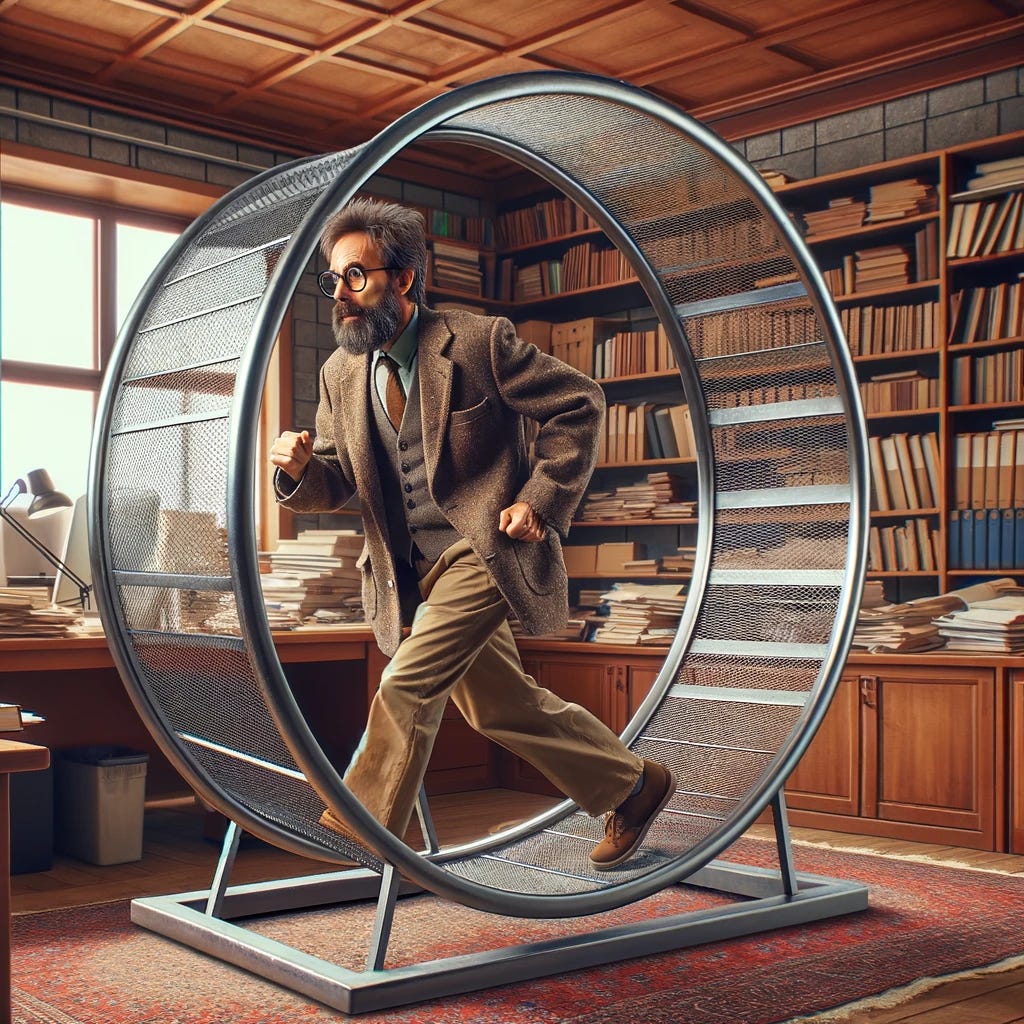The Future of Work (and the 10% retirement challenge)
Issue 122: Jay explains the value of subtraction from our lives and how to become the architect of your own identity.
The last few years have come with an incredible upheaval in terms of how we work, from the challenges of working at home during the initial stages of the pandemic to the ongoing debate about hybrid work. This has introduced huge challenges about how to manage organizational culture as well as deep existential questions about how many of us want to live our lives.
I have both been grappling with these challenges in my work as well as my personal life. After a lot of discussion and reflection, I have decided to make some major changes to the way I work. Instead of constantly adding to my workload, I have decided to try something different and remove a few things (if you want to read about the power of subtraction, I recommend this recent interview on Hidden Brain with Leidy Klotz or our interview on Quitting with Annie Duke).
I am proposing something different: I’m calling it “the 10% retirement”. I decided to critically examine everything I do and try to remove tasks and activities that take up 10% of my time.
I am not advocating for “quiet quitting” because I genuinely love my job (and if you hate yours, I’d strongly recommend finding a new one rather than lingering in quiet misery). But I often feel like I am running on an academic hamster wheel. It gets faster and faster, but I feel stuck in place.
Therefore, I am proposing something different: I’m calling it “the 10% retirement”. I decided to critically examine everything I do and try to remove tasks and activities that take up 10% of my time. But my goal wasn’t to simply make my life easier, but to remove the distractions that take me away from the parts of me job that I’m most passionate about and where I think I can have the most impact.
There are a lot of good reasons for doing this:
Feeling overwhelmed is simply exhausting. As we wrote about in a previous newsletter, burnout impacts mental health and makes it harder to get things done. Removing the clutter is a long-term recipe for feeling better, helping the people we care about, and achieving our goals.
It’s a perfect time to create new norms. The pandemic disrupted a lot of our lives. For the most part it was a stressful—if not a tragic—experience. But by disrupting our daily routines and breaking us from old norms and habits, it gave us all a chance to reflect on what really matters.
Quitting is hard, but necessary. We often overlook the value of removing things that get in our way. This means we should spent a lot more time thinking about what to remove from our lives, rather than continually adding responsibilities.
Many aspects of our jobs are full of these activities that have absolutely zero impact on the world—or even our careers. Yet we pursue them because someone asked us to or because we are simply in the habit of doing it. Getting rid of the clutter allows us to focus on the essential aspects of our work and life.
I have decided to share my thoughts on what the “new normal” looks like for me and some of the trends I see on the horizon. I would also love to hear about the challenges you’ve faced and changes you’ve made in the comments—tell me about your own plans for a 10% retirement.
Then track your progress. Do you feel less frenzied? Do you have more time and energy for your core priorities? For your health? Your family and friends? Are you any less effective? Please tell us how this works out in a year or two. Maybe if we all decided to retire from the most meaningless 10% we'd find that there were a lot of things that none of us truly enjoyed, and were quite unnecessary to begin with. Then we could stop pressuring one another to do it. Stop feeling an existential sense of dread wash over us when we miss out on some opportunity.
My 10% Retirement:





